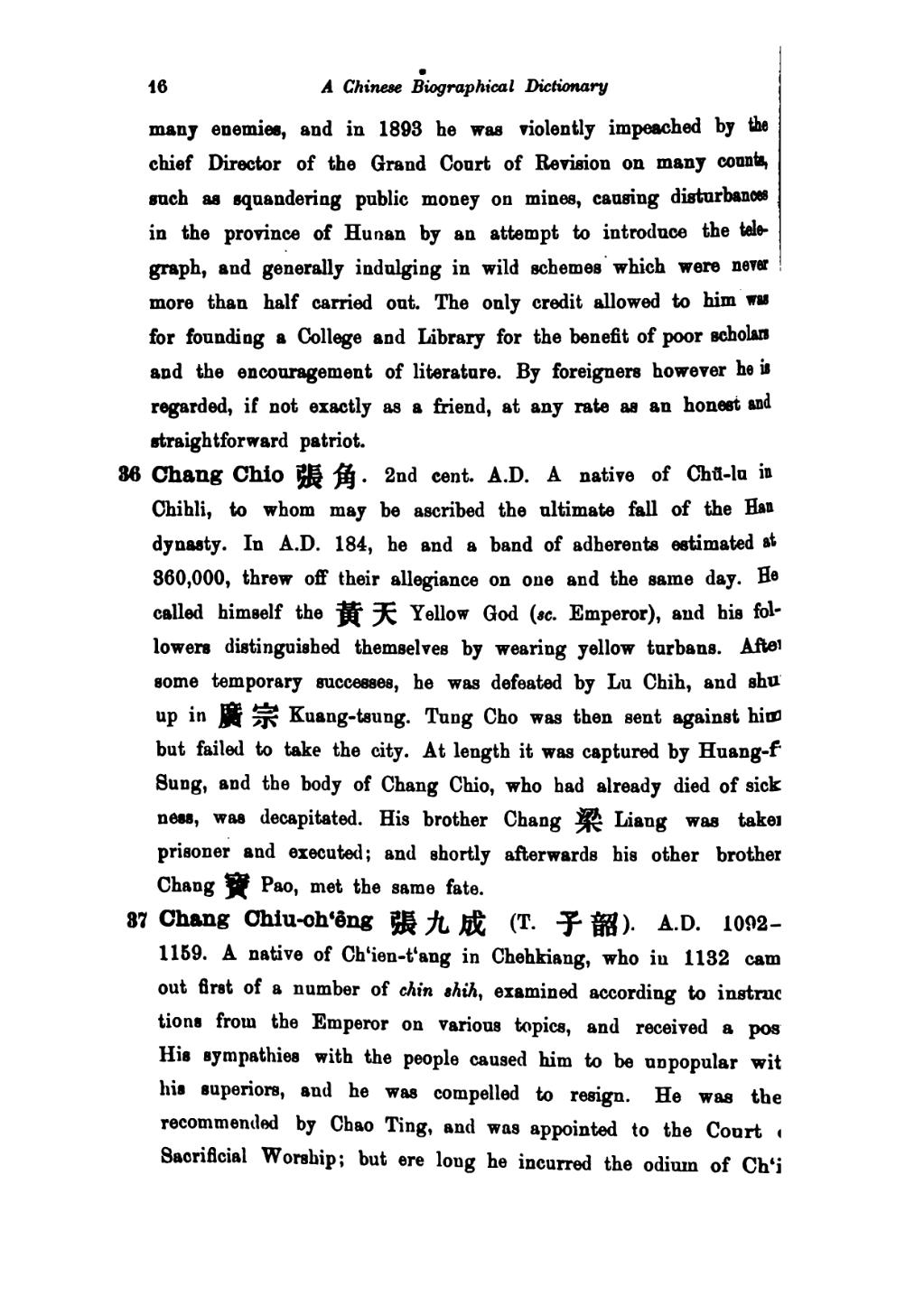many enemies, and in 1893 he was violently impeached by the chief Director of the Grand Court of Revision on many counts, such as squandering public money on mines, causing disturbances in the province of Hunan by an attempt to introduce the telegraph, and generally indulging in wild schemes which were never more than half carried out. The only credit allowed to him was for founding a College and Library for the benefit of poor scholars and the encouragement of literature. By foreigners however he is regarded, if not exactly as a friend, at any rate as an honest and straightforward patriot.
36Chang Chio 張角. 2nd cent. A.D. A native of Chü-lu in Chihli, to whom may be ascribed the ultimate fall of the Han dynasty. In A.D. 184, he and a band of adherents estimated at 360,000, threw off their allegiance on one and the same day. He called himself the 黄天 Yellow God (sc. Emperor), and his followers distinguished themselves by wearing yellow turbans. After some temporary successes, he was defeated by Lu Chih, and shut up in 廣宗 Kuang-tsung. Tung Cho was then sent against him but failed to take the city. At length it was captured by Huang-fu Sung, and the body of Chang Chio, who had already died of sickness, was decapitated. His brother Chang 梁 Liang was taken prisoner and executed; and shortly afterwards his other brother Chang 寶 Pao, met the same fate.
37Chang Chiu-chêng 張九成 (T. 子韶). A.D. 1092–1159. A native of Ch'ien-t'ang in Chehkiang, who in 1132 came out first of a number of chin shih, examined according to instructions from the Emperor on various topics, and received a post. His sympathies with the people caused him to be unpopular with his superiors, and he was compelled to resign. He was then recommended by Chao Ting, and was appointed to the Court of Sacrificial Worship; but ere long he incurred the odium of Ch'in

